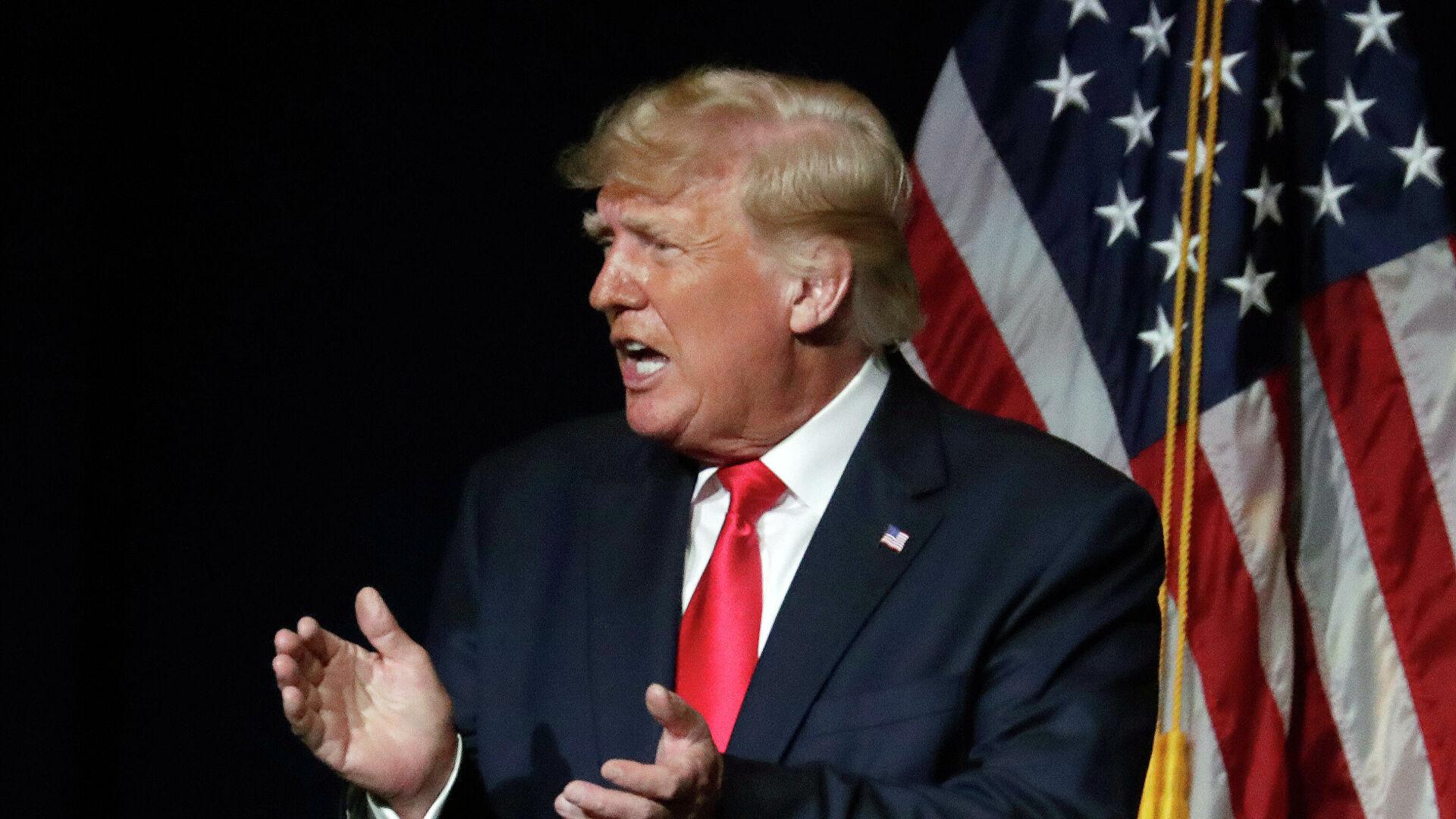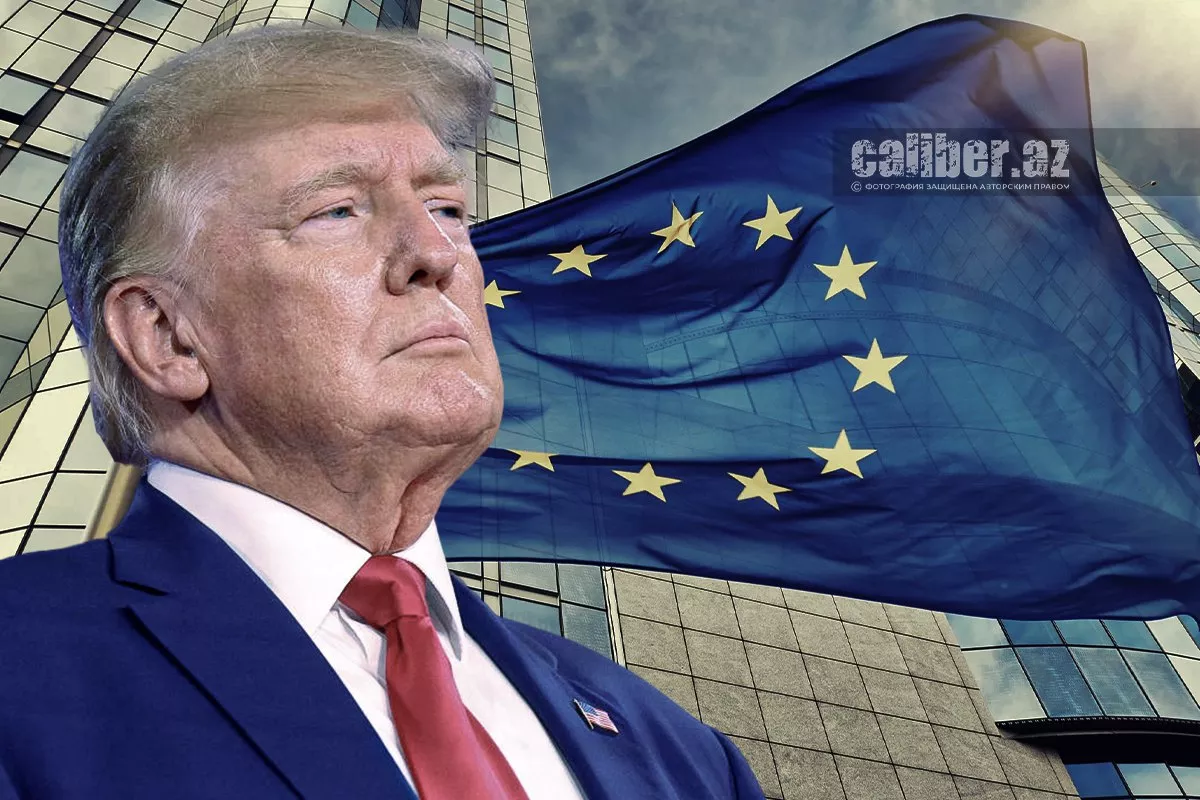Trump 2.0: New era for global politics The end of the “old” Europe and a blow to Soros
According to leading global media outlets, 2025 is poised to be a year of significant events, as indicated by the bold statements made by U.S. President Donald Trump during his inauguration ceremony on January 20, as well as prior to taking office. Specifically, the Financial Times notes that Trump's election has shifted the agenda of the World Economic Forum. The publication also emphasizes that Trump's victory has instilled optimism in American businesses, with data from the WEF showing a decline in expectations of economic downturns and inflationary growth compared to 2024.
International analysts suggest that Donald Trump's return to the White House could significantly shake the global order, testing both the transatlantic partnership and European unity. One of the key points of concern is his tough stance on the European Union, urging it to purchase more American oil and gas to avoid tariffs. This is in line with his previous threat to impose new 10-20% tariffs on all imports, citing the EU’s $300 billion trade deficit.
Additionally, Trump’s administration is expected to take a stringent approach to “democratic values,” particularly concerning gender policies. He has already announced plans to reject the policy of recognizing multiple genders, with legislation set to define only two genders: male and female. This move clashes with the liberal values of "freedom of rights and choice" that are prevalent in much of democratic Europe and aligns with his directive on safeguarding free speech in the U.S.
Furthermore, Trump’s statements about ending wars suggest that his foreign policy will shift toward reducing the U.S.'s involvement in international conflicts, focusing more on domestic issues.

Immediately after his inauguration, Donald Trump signed a series of significant executive orders, among which his decision to withdraw the U.S. from the Paris Climate Agreement stands out. During his first term (January 2017 – January 2021), Trump also announced the U.S.'s exit from the agreement, which formally took effect in November 2020. However, the U.S. rejoined the accord in 2021 after Joe Biden assumed the presidency.
The Paris Agreement aims to reduce greenhouse gas emissions and provide financial assistance to developing countries to address environmental issues. The U.S., as the world’s largest oil producer, the leading exporter of liquefied natural gas, and the second-largest emitter of greenhouse gases (after China), has long played a significant role in global climate discussions. Despite this, Trump's campaign promises to cut investments in renewable energy and remove restrictions on domestic fossil fuel extraction have not been hindered by these realities.
Furthermore, Trump’s decision to terminate the "Green New Deal" casts doubt on Europe's global green agenda, signalling expected tensions in U.S.-EU relations on this issue. European Commissioner for Climate, Wopke Hoekstra, called the U.S. withdrawal from the Paris Agreement a "potential disaster," while German Vice Chancellor Robert Habeck described it as "fatal" and urged Europe to continue its efforts to reduce reliance on hydrocarbons.
However, this is far from the only decision by Donald Trump that contradicts European policy. The European Union disagrees with several other issues raised by the U.S. president, particularly concerning Greenland. On January 7, Trump stated that Greenland should become part of the U.S., threatening to impose high trade tariffs on Denmark if it does not relinquish control of the island. This was not the first time Trump proposed purchasing Greenland; during his first term, the Danish and Greenlandic authorities rejected the idea.
This week, while signing several executive orders, Trump expressed the view that maintaining Greenland is too costly for Denmark, and therefore the country cannot afford to keep the island. Additionally, in the lead-up to his inauguration, Trump launched several trial balloons, declaring that Canada could become the 51st U.S. state and that the Panama Canal might be returned to U.S. control, potentially through the use of military force if necessary.
Trump’s intentions were underscored by the fact that one of the first documents he signed as president was an executive order to rename the Gulf of Mexico to the "American Gulf." These bold moves clearly demonstrate that Trump's words are likely to be backed by actions.

Trump's statements and actions naturally leave Europe's liberal elites, who had bet on the Democratic Party in the U.S., in a state of shock, forcing them out of their comfort zones. There are plenty of reasons for concern in the Old Continent. The EU's powerhouses, France and Germany, are deeply entangled in political and economic issues, and it's becoming increasingly difficult for them to compete with China. On top of that, during a video conference at the World Economic Forum in Davos on January 23, Trump demanded that European allies increase military spending to 5% of their GDP. Trump made it clear that he would protect American industry through tariffs, delivering a powerful blow to the European economy.
According to the newspaper Bild, Chancellor Scholz discussed Trump's statements with Denmark's Prime Minister Mette Frederiksen, French President Emmanuel Macron, and NATO Secretary General Mark Rutte.
It is clear that "old" Europe was absolutely unprepared for Donald Trump's second presidential term. There are real grounds to believe that the far-left liberal-fascist ideology, promoted by certain circles in Europe, may come to an end. At the same time, this could significantly limit the powerful influence of the American billionaire George Soros' empire on both American and European politics. Back in October 2018, Trump accused George Soros of funding protests against his Supreme Court nominee. The American leader referred to the people protesting in Washington against the confirmation of his nominee, Brett Kavanaugh, as "paid professionals," supported by the American billionaire George Soros, as he posted on his Twitter account.

As is well known, George Soros has been one of the main sponsors of the American Democrats for many years. It’s no surprise, then, that just days before leaving the White House, Joe Biden awarded George Soros the Presidential Medal of Freedom, a move that outraged many American politicians, who called it a national disgrace. But now, difficult times are ahead for Soros. It’s no coincidence that Soros’ heir, Alex Soros, in an interview with the Financial Times, described Donald Trump’s return to power in the U.S. as a farce and a tragedy. In this context, it’s worth noting that back in May 2022, Hungarian political analyst Tamás Fritz wrote in Magyar Nemzet that the conflict in Ukraine exposed the scale of the European Union’s governability by the George Soros clan.
Thus, it can be said that Donald Trump’s second term will significantly alter the architecture of European politics and the "values" of Europe, while delivering a blow to the Soros clan, substantially weakening it. For Europe to stay afloat, it will have to not only rid itself of Soros' influence but also adapt to a president who is determined to make America great again.








